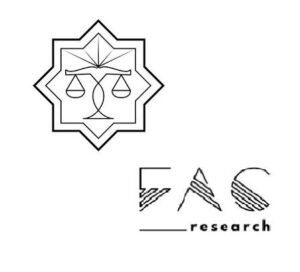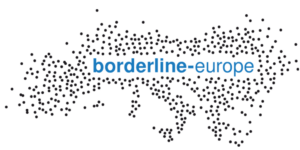 This report draws on operational and aggregated medical data, patient testimonies, and observations of staff that Medecins Sans Frontieres (MSF) gathered between August 2021 and July 2023. It builds on an existing body of accounts of violence and pushbacks at Greece’s borders, and highlights the physical and psychological suffering, as well as the life-threatening risks, endured by those seeking safety and protection in Greece.
This report draws on operational and aggregated medical data, patient testimonies, and observations of staff that Medecins Sans Frontieres (MSF) gathered between August 2021 and July 2023. It builds on an existing body of accounts of violence and pushbacks at Greece’s borders, and highlights the physical and psychological suffering, as well as the life-threatening risks, endured by those seeking safety and protection in Greece.
Category: Media Archive
work in progress…
XX/09/23 – Beyond Farmakonisi: The responsibility of the Greek Coast Guard for human rights violations at sea
 Refugee Support Aegean, and Pro Asyl report on the violations identified by the Court in the Farmakonisi case not being isolated, contrary to the view expressed by the Greek government before the Council of Europe. They point to systemic deficiencies accounting for broader breaches of the right to life and the prohibition of torture in the general course of Coast Guard operations on border protection and rescue, as well as in the context of criminal investigation of complaints. These issues have re-emerged in the aftermath of the Pylos shipwreck of 14 June 2023 that left 82 people dead and several hundred missing. The Council of Europe Commissioner for Human Rights has stressed that “the shipwreck of 14 June is unfortunately not an isolated incident” and urged for an effective investigation thereof.
Refugee Support Aegean, and Pro Asyl report on the violations identified by the Court in the Farmakonisi case not being isolated, contrary to the view expressed by the Greek government before the Council of Europe. They point to systemic deficiencies accounting for broader breaches of the right to life and the prohibition of torture in the general course of Coast Guard operations on border protection and rescue, as well as in the context of criminal investigation of complaints. These issues have re-emerged in the aftermath of the Pylos shipwreck of 14 June 2023 that left 82 people dead and several hundred missing. The Council of Europe Commissioner for Human Rights has stressed that “the shipwreck of 14 June is unfortunately not an isolated incident” and urged for an effective investigation thereof.
23/08/2023 – A Pandemic of Abuses
 Report by the Legal Centre Lesvos and the Feminist Autonomous Centre for research documents how Greece dismantled the right to asylum and normalised the violation of migrants’ rights throughout the COVID-19 pandemic in Lesvos.
Report by the Legal Centre Lesvos and the Feminist Autonomous Centre for research documents how Greece dismantled the right to asylum and normalised the violation of migrants’ rights throughout the COVID-19 pandemic in Lesvos.
Radio VC Mytilene – Locked up for crossing the sea: Arbitrary Criminalization of Migrants
This episode of Voices Of Mytilene is about the arbitrary criminalization of migrants in Greece. Currently there are over a thousand migrants spending time in jail in Greece as they are accused of smuggling or other highly dubious charges. It is a not too well-known but nevertheless highly efficient method used by Greece – but also in other parts of Europe – to oppress and intimidate migrants.
https://open.spotify.com/episode/4sIOzYLlTWXJG9QL23bR1S?si=8S8GxnkxTAGgngulXMGe4g
XX/07/2023 – A Legal Vacuum. The Systematic Criminalisation of Migrants for Driving a Boat or Car to Greece
 This study by borderline-europe examines the reality of anti-smuggling efforts in Greece, analysing the current legal framework as well as its practical enforcement. It shows that instead of protecting the rights of smuggled migrants and asylum seekers, these policies criminalise them and expose them to long prison sentences with the accusation of smuggling, all simply for having crossed the border by boat or car. This is made possible both by the legal framework set up in Greece and the EU, which is formulated very broadly, and further reinforced by an implementation that is characterised by gross rights violations such as arbitrary arrests, torture, abuse, coercion, and lack of access to legal support and interpretation. Individuals are typically arrested immediately upon arrival, held in pre-trial detention for months, and have very limited options to defend themselves and access support. The trials that tackle these accusations are very short and flout basic standards of fairness. Consequently, people convicted of smuggling form the second largest group by crime in Greek prisons, with almost 90% of them being third-country nationals. Given the gravity and extent to which criminalization and related human rights violations take place, there is an urgent need to address this issue.
This study by borderline-europe examines the reality of anti-smuggling efforts in Greece, analysing the current legal framework as well as its practical enforcement. It shows that instead of protecting the rights of smuggled migrants and asylum seekers, these policies criminalise them and expose them to long prison sentences with the accusation of smuggling, all simply for having crossed the border by boat or car. This is made possible both by the legal framework set up in Greece and the EU, which is formulated very broadly, and further reinforced by an implementation that is characterised by gross rights violations such as arbitrary arrests, torture, abuse, coercion, and lack of access to legal support and interpretation. Individuals are typically arrested immediately upon arrival, held in pre-trial detention for months, and have very limited options to defend themselves and access support. The trials that tackle these accusations are very short and flout basic standards of fairness. Consequently, people convicted of smuggling form the second largest group by crime in Greek prisons, with almost 90% of them being third-country nationals. Given the gravity and extent to which criminalization and related human rights violations take place, there is an urgent need to address this issue.
Von Unten – Who profits from brutal and murderous Pushbacks?
For the occasion of World Refugee Day on 20 June, you can listen to a podcast with the cooperation of radio station Radio VC Mytilini on Lesvos. It’s about the brutal and murderous pushbacks at the EU’s external borders and who benefits financially from them. The people who carry out these pushbacks are paid for it, you can find out where the money comes from in this podcast. The podcast is in English.
Published by CBA on https://cba.fro.at/624115
XX/05/2023 – What is happening today in the refugee structures on the Aegean islands: Serious problems in the EU-funded structures
 Report of Refugee Support Aegean and Pro Asyl on how seven years after signing the toxic EU-Turkey “agreement”, the East Aegean islands remain “black holes” for the fundamental rights of applicants for international protection. According to recent data, arrivals had increased significantly in late 2022 and early 2023. At the same time, allegations of deterrence practices and informal forced returns (pushbacks) at maritime borders continue. In the Closed Controlled Access Centres (CCAC) in Samos, Kos and Leros – the construction of which was 100% financed by the European Union – as well as in those in Lesvos and Chios, asylum seekers and their children live in remote areas with disproportionate security and surveillance measures, facing reported violent behaviour by security authorities and with significant shortcomings in legal assistance, medical care and interpretation. Shortcomings can be observed even in basic necessities due to delays in competitions, the withdrawal of NGOs, but also due to delays in the provision of the monthly financial assistance allowances provided for asylum seekers.
Report of Refugee Support Aegean and Pro Asyl on how seven years after signing the toxic EU-Turkey “agreement”, the East Aegean islands remain “black holes” for the fundamental rights of applicants for international protection. According to recent data, arrivals had increased significantly in late 2022 and early 2023. At the same time, allegations of deterrence practices and informal forced returns (pushbacks) at maritime borders continue. In the Closed Controlled Access Centres (CCAC) in Samos, Kos and Leros – the construction of which was 100% financed by the European Union – as well as in those in Lesvos and Chios, asylum seekers and their children live in remote areas with disproportionate security and surveillance measures, facing reported violent behaviour by security authorities and with significant shortcomings in legal assistance, medical care and interpretation. Shortcomings can be observed even in basic necessities due to delays in competitions, the withdrawal of NGOs, but also due to delays in the provision of the monthly financial assistance allowances provided for asylum seekers.
30/03/2023 – Systemic deficiencies in the access of beneficiaries of international protection to documents and socio-economic rights
Radio VC Mytilene – Children in the Camp
In this episode our guest , who is a teacher inside the camp talks about different perspectives on children’s life in the camp, the educational system, living conditions for children, their mental health and so on.
https://open.spotify.com/episode/4rxJClf1j68bBaz1lztlq3?si=mOx31gasTqO61aR-fGKdPg
12/12/2022 – Submission of Legal Centre Lesvos to the UN Special Rapporteur on Torture
 Based on its own documentation and reporting, the Legal Centre Lesvos demonstrates in a recent submission to the UN Special Rapporteur on Torture that the illegal practice of systematic pushbacks in the Aegean region amount to torture, both under international and Greek law.
Based on its own documentation and reporting, the Legal Centre Lesvos demonstrates in a recent submission to the UN Special Rapporteur on Torture that the illegal practice of systematic pushbacks in the Aegean region amount to torture, both under international and Greek law.
